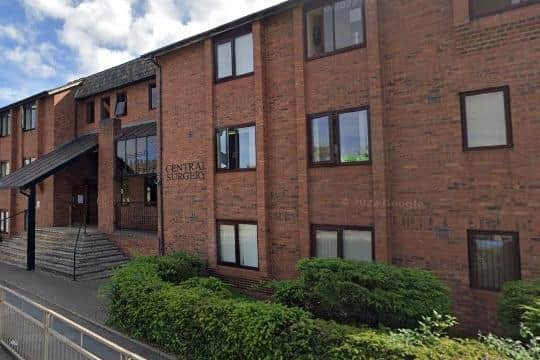Rugby surgery placed into special measures after inspectors rated it as 'inadequate'
and live on Freeview channel 276
A Rugby surgery has been placed into special measures after inspectors rated it as 'inadequate'.
The Care Quality Commission (CQC) went to Central Surgery to follow up on concerns raised about the quality of care being delivered.
Advertisement
Hide AdAdvertisement
Hide AdAnd the inspectors were worried by what they saw, changing the rating for the surgery in Corporation Street from good to inadequate, and placing them into special measures.


Sonia Brooks, CQC deputy director of operations in the midlands, said: “We’ve told the provider where they must make rapid improvements and we’ll continue to monitor it closely to ensure people are safe. If we don’t see these improvements, we will not hesitate to take further action.”
As well as the overall rating for Central Surgery dropping, the ratings for how safe and well-led the service is have dropped from good to inadequate. The ratings for effective and responsive have also declined from requires improvement to inadequate. The rating for caring remains rated as good.
Ms Brooks added: “When we visited Central Surgery, we found a decline in how safe and well-led the service was since our last inspection. Behind this was a lack of good leadership which was having an impact in most areas of the practice.
Advertisement
Hide AdAdvertisement
Hide Ad“People’s safety was at risk because leaders didn’t ensure good processes were in place or being followed in a number of key areas. It was particularly worrying that the practice wasn’t regularly reviewing the effectiveness and appropriateness of the care it provided.
“People’s records weren’t good enough to support staff in carrying out medicines reviews which included being able to monitor people who are on high risk medications. In addition, notes from discussions and test results weren’t always recorded.
“Leaders must also look to improve culture at the service, with staff telling us they didn’t feel supported, or feel like they could raise concerns.
“During our inspection, we found that neither site had the appropriate emergency medication and staff hadn’t been trained in basic life support meaning they may not be able to help someone if they became very unwell.
Advertisement
Hide AdAdvertisement
Hide Ad“However, despite the issues with leadership and process, we did see staff who were caring and compassionate towards the people they cared for."
Central Surgery’s GP partners said: “Our CQC inspection occurred at the height of winter pressures and the report was very disappointing.
“Our mission is to serve our patients. We recognise them as individuals and strive to deliver the excellent healthcare they deserve. We provide a service 52 weeks a year and have a team of dedicated and hardworking healthcare professionals aiming to adapt and improve care as medical science and the NHS develops post-Covid.
“Despite a national crisis of low morale in the NHS and particularly in general practice, we are still passionate about serving the people of Rugby. We believe we offer a high standard of patient care and want to reassure all our patients this will continue and improve further going forward.
Advertisement
Hide AdAdvertisement
Hide Ad“Many improvements have already been delivered and we are working to rectify all the issues identified as soon as possible.”
Visit https://tinyurl.com/fp8w5ddn to read the full CQC report.